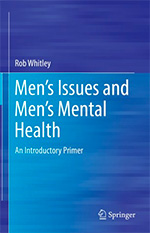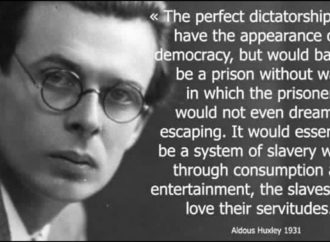‘Patriarchy’, ‘male privilege’, ‘rape culture’ and ‘toxic masculinity’ all perpetuate all-encompassing buzzwords and negative stereotypes and associated policies which can discriminate against men wholesale

“Male privilege” and “toxic masculinity” were identified as perpetuating harmful stereotypes about men in a recent psychology book published by Springer
The denialism and ignorance on this topic was also suggested to be a reflection of a psychological bias called “male gender blindness”, which as a concept seems pretty similar to the idea of male invisibility.
Anyway here’s where they talk about male privilege and toxic masculinity perpetuating these gender stereotypes, and why that is a problem.
It’s from Section 1.3.1, “Gender Stereotypes of Men” in Men’s Issues and Men’s Mental Health: An Introductory Primer.
It has been argued that these negative stereotypes of men are perpetuated by all-encompassing buzzwords frequently seen in the media such as ‘patriarchy’, ‘male privilege’, ‘rape culture’ and ‘toxic masculinity’ which can shape wider attitudes and policies (Nuzzo, 2019; Barry et al., 2019). Such negative stereotypes may also have been fuelled by recent social movements including #MeToo and moral panics about male sexuality on campus and beyond (Liddon & Barry, 2021; Kipnis, 2017). In sum, the actions of a very small minority of men are often extrapolated to the whole population of men by various sectors of society, leading to the aforementioned negative stereotypes and associated policies which can discriminate against men. As will be argued throughout this book, such negative stereotypes can colour and shape the treatment of males by others, including treatment by: (i) health services (ii) law enforcement; (iii) the legal system; (iv) employers; (v) teachers/professors; and (vi) the general public.
I’d probably add that, by contrast, we do not generalize the actions of a small number of women as being a systemic problem that any woman is capable of due to inherent flaws of feminity, “toxic” or otherwise. Even this idea that it’s “only a small number of men” or #NotAllMen perpetuates the idea that there might still be a unique problem with men, as opposed to a problem with specific people or society.
Either way this view is a huge breath of fresh air and I hope more researchers are able to take a facts and evidence based approach on these kinds of topics instead of falling in line with harmful pop-culture pseudoscience.
 Men’s Issues and Men’s Mental Health
Men’s Issues and Men’s Mental Health
Author: Rob Whitley
-
Focuses on men’s mental health and men’s issues that are growing in importance and have increasing societal prominence
-
Takes a public health/social determinants transdisciplinary approach, making a unique argument
-
Addresses a gap in the literature as there are no recent nor “classic” texts focused on men’s mental health
































Leave a Comment
Your email address will not be published. Required fields are marked with *